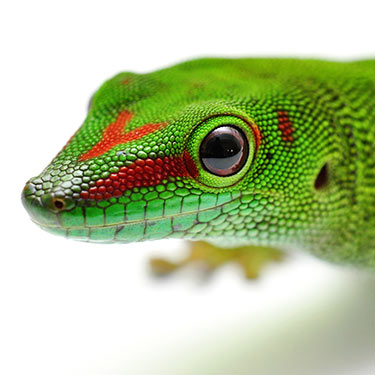Integrated Bioscience, Ph.D.
Ph.D. in Integrated Bioscience
About the Degree
Integrated Bioscience is a unique interdisciplinary doctoral program where biology is at the interface of research that cuts across traditional scientific boundaries. Students work with their faculty advisors to design personalized coursework and research training experiences that draw from expertise across the entire campus, encouraging novel approaches to bio-based research challenges. Integrated Bioscience compliments other bio-related graduate training opportunities at the University of Akron such as those in the Colleges of Polymer Science and Polymer Engineering, Nursing, and Engineering, and offers students unrivaled flexibility in the design of their Ph.D. curriculum. The dynamic interdisciplinary IB platform has allowed students and faculty to track and shape emerging research areas such as nanotechnology, geomicrobiology, biomedical engineering, biomaterials, and biomimicry.
Specialty - Biomimicry: The natural world offers design solutions for societal challenges ranging from medicine to traffic to economy to sustainable urban growth, and the biomimicry option offers students training in successful translation of designs from nature. There are no additional credit requirements for a specialty in biomimicry, but Fellows are funded through the Biomimicry Research and Innovation Center (BRIC).
In this degree program, students will study biomaterials, biomedical engineering, biomimicry, environmental bioscience, computational biology, geomicrobiology and bioinformatics.
Salary and Career Outlook
The 2017 Ohio Bioscience Growth Report has identified a large and growing bioscience industry within Ohio, with 3,994 bioscience companies and facilities within the state adding over 9,000 jobs between 2015-2017. This bioscience industry employs over 75,000 Ohioans, with over $5.68 billion in paid salaries (an increase of 24%) over the last decade. Cleveland and Akron lead the state in the number of bioscience jobs, with 1,295 companies within the region (representing more than 30% of all state-wide bioscience jobs). It is therefore likely that there will be an increasing demand within Northeastern Ohio for skilled workers prepared for innovative jobs in the biosciences. Graduates of this program enter the work force as broadly trained specialists who are comfortable and competent crossing disciplines, with training appropriate for positions in government, private industry and academia.
-
Biomaterials = $95,500
-
Biomedical Engineering = $86,950
-
Environmental Bioscience = $71,290
-
Computational Biology = $72,000
-
Bioinformatics = $77,000.
Note: Biomimicry is a new enough field that reliable data on salaries are not yet available.
Why Akron?
The Integrated Bioscience PhD program addresses the needs of the U.S. in Ph.D. level graduates who have both deep and specific expertise in a bioscience, bioengineering or biotechnology discipline and broad adaptability across related disciplines. These graduates take their integrative thinking, adaptability, and communication skills into the job market, where they will spur economic growth. The program is composed of several areas of excellence: (1) molecular cell biology and genetics; (2) geochemistry and geomicrobiology; (3) physiology and organismal biology; (4) ecology and evolutionary biology, (5) biochemistry and biopolymers, (5) bioinformatics and computational biology, (7) bio-engineering and (8) biomimicry. These areas of excellence will provide students with high-demand, specific skills in addition to developing integrative thinking and problem-solving skills.
The University of Akron's IB program is unique in that it specifically partners PhD students, from the moment they are on campus, with other students across a broad range of disciplines. In the first year of courses, the IB students learn various bio-related techniques from many disciplines, learn how to communicate ideas across traditional disciplinary boundaries, and actually conduct research projects together in interdisciplinary groups. This coursework in the first year are strengthened over the course of the PhD by attending IB seminars and the mandatory cross-disciplinary requirements built into the development of their dissertation research. Additionally, many research projects involve partnering with regional companies to conduct joint research projects (e.g., in association with the Biomimicry Research and Innovation Center). This level of structured interdisciplinary interaction for a PhD is not replicated anywhere else in the United States, and thus is a unique aspect of the Integrate Bioscience program.
As the sciences continue to evolve away from the individual discipline, silo-approach to problem solving, bioscience increasingly depends upon the availability of scientists with training in more than one discipline. The objective of the Integrated Bioscience PhD curriculum is to provide broad training for biologists that allows them to approach questions in biology from multiple angles, teaching them the adaptability and communication skills necessary for integrative thinking.
Graduates will have rigorous training in a specialty area of bioscience, that includes cross-disciplinary training in topics such as biochemistry, bioengineering, bioinformatics, chemistry, computational, geology and mathematical biology, and polymer science. Training includes the ability to identify critical areas of information science that are needed to analyze biological-systems across broad scientific areas that are expected to expand in the 21st century. Well-trained integrated bioscientists will combine a broad understanding of both biology, but also a sub-discipline that will make them qualified to work in emergent, cross-disciplinary fields.
More information on the Integrated Bioscience Program can be found here: http://www.uakron.edu/ib/ and the Biomimicry specialty within IB is outlined here: http://uabiomimicry.org/.
Graduates of this program can be found in jobs such as:
Michigan State University - Assistant Professor; Villanova University - Assistant Professor; Cook Medical - Research Associate; University of Oregon - Post-doctoral fellow; University of Akron - BRIC Director of External Relations; Carnegie Mellon University - Research Programmer; Alpha Institute for Biotechnology - Assistant Professor; University of Mount Union - Assistant Professor; Texas A&M Health Science Center - Postdoctoral Research Associate; University of Louisville - Postdoctoral Associate; University of Bath - Postdoctoral Associate; University of Akron - Field Station Manager; Thompson Rivers University (Canada), Postdoctoral Fellow and Associate Graduate Instructor; Columbia University - Simons Junior Fellow; University of Texas, Austin - Postdoctoral Associate
Contact Information
Contact Information:
Hazel A. Barton
Professor and Director
Integrated Bioscience
Mailing address:
Department of Biology
University of Akron
185 E. Mill St
Akron, OH 44325
Phone: 330-972-2518
Email: bartonh@uakron.edu

